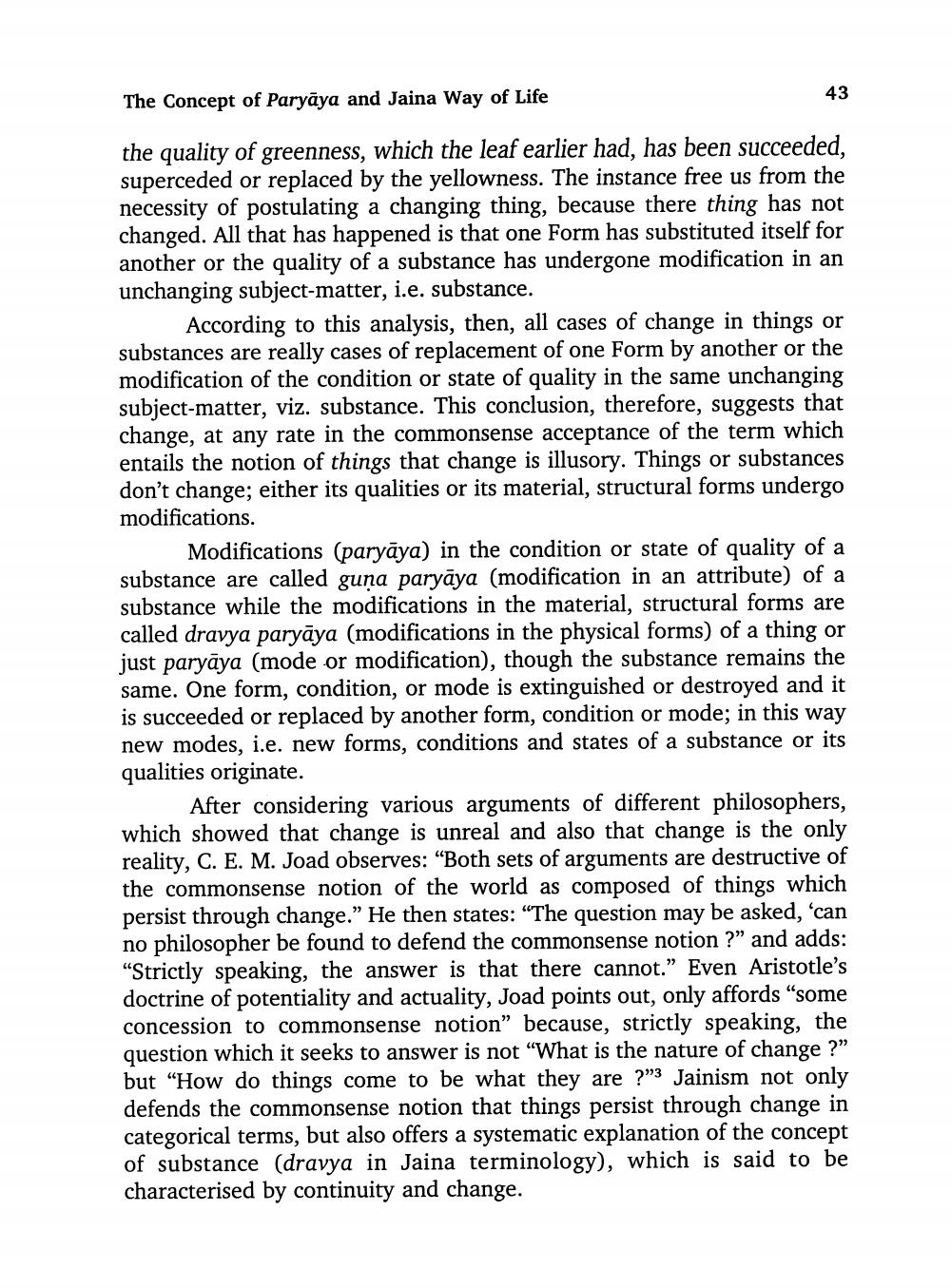________________ The Concept of Paryaya and Jaina Way of Life the quality of greenness, which the leaf earlier had, has been succeeded, superceded or replaced by the yellowness. The instance free us from the necessity of postulating a changing thing, because there thing has not changed. All that has happened is that one Form has substituted itself for another or the quality of a substance has undergone modification in an unchanging subject-matter, i.e. substance. According to this analysis, then, all cases of change in things or substances are really cases of replacement of one Form by another or the modification of the condition or state of quality in the same unchanging subject matter, viz. substance. This conclusion, therefore, suggests that change, at any rate in the commonsense acceptance of the term which entails the notion of things that change is illusory. Things or substances don't change; either its qualities or its material, structural forms undergo modifications. Modifications (paryaya) in the condition or state of quality of a substance are called guna paryaya (modification in an attribute) of a substance while the modifications in the material, structural forms are called dravya paryaya (modifications in the physical forms) of a thing or just paryaya (mode or modification), though the substance remains the same. One form, condition, or mode is extinguished or destroyed and it is succeeded or replaced by another form, condition or mode; in this way new modes, i.e. new forms, conditions and states of a substance or its qualities originate. After considering various arguments of different philosophers, which showed that change is unreal and also that change is the only reality, C. E. M. Joad observes: "Both sets of arguments are destructive of the commonsense notion of the world as composed of things which persist through change." He then states: "The question may be asked, 'can no philosopher be found to defend the commonsense notion ?" and adds: "Strictly speaking, the answer is that there cannot." Even Aristotle's doctrine of potentiality and actuality, Joad points out, only affords "some concession to commonsense notion" because, strictly speaking, the question which it seeks to answer is not "What is the nature of change ?" but "How do things come to be what they are ?>>3 Jainism not only defends the commonsense notion that things persist through change in categorical terms, but also offers a systematic explanation of the concept of substance (dravya in Jaina terminology), which is said to be characterised by continuity and change.




